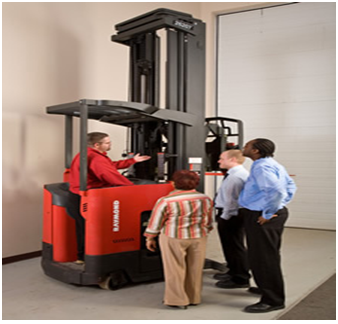Proper training is essential when working with construction machinery, as any reader is (hopefully) aware of, given the danger that can occur if such equipment was misused. For this reason, construction teams are required to perform a training program tailored to the use of a specific type of machine, like a forklift. But proper training doesn’t always end when one learns how to use a machine.
A construction worker must also be aware of how a machine is powered, and the proper way in which to replace and refuel a piece of equipment’s power source. Using the example of a forklift, a construction worker must be fully trained in propane cylinder exchange procedures, lest a potentially fatal accident occur.

Powered by propane, forklifts require regular refuels via a propane cylinder exchange. Many may assume that the process is simple, or use a rationale similar to “well I already know how to properly use the machine, and I’ve done this with my barbecue before, so I should be fine,” which isn’t quite the case.
Even when empty, propane cylinders can still pose a danger to one’s safety. Coupled with the full cylinder of propane one would likely have nearby to replace the empty cylinder within the forklift, and you can recognize the potential safety hazard. For the sake of a worker’s personal safety and the safety of the entire construction project, propane cylinder exchange training is essential.
Modeled after the Ministry of Labour’s requirements for all those who interact with propane cylinders while on a construction site, Johnston Equipment offers a Propane Cylinder Exchange Training program that is designed to meet industry safety standards. Promised to ensure “the health and safety of the forklift operator when operating a propane counterbalance,” Johnston’s program will cover everything you and your team need to know.
Starting off with rudimentary lessons, the program begins by teaching a general knowledge of propane, then moving on and delving into specific areas of information that construction and warehouse workers need to know, including: cylinder storage, cylinder components, removal and exchange procedures, what to do in case of an emergency, and even material safety data sheets. By beginning at the most basic principles then covering more concrete safety applications, the program covers everything you need to know.
Fortunately the program itself, despite its breadth of covered topics, is still quite short and easy to get through. The class itself only lasts for half a day, and Johnston is willing to have the training take place at one of their facilities or on-site at yours, ensuring a high level of convenience for all parties. Even if you don’t have a large crew, you have the option of having a mixed-class with other workers.
To learn more about Johnston’s Propane Cylinder Exchange Training and their other training courses, head to Johnston’s official website here.

